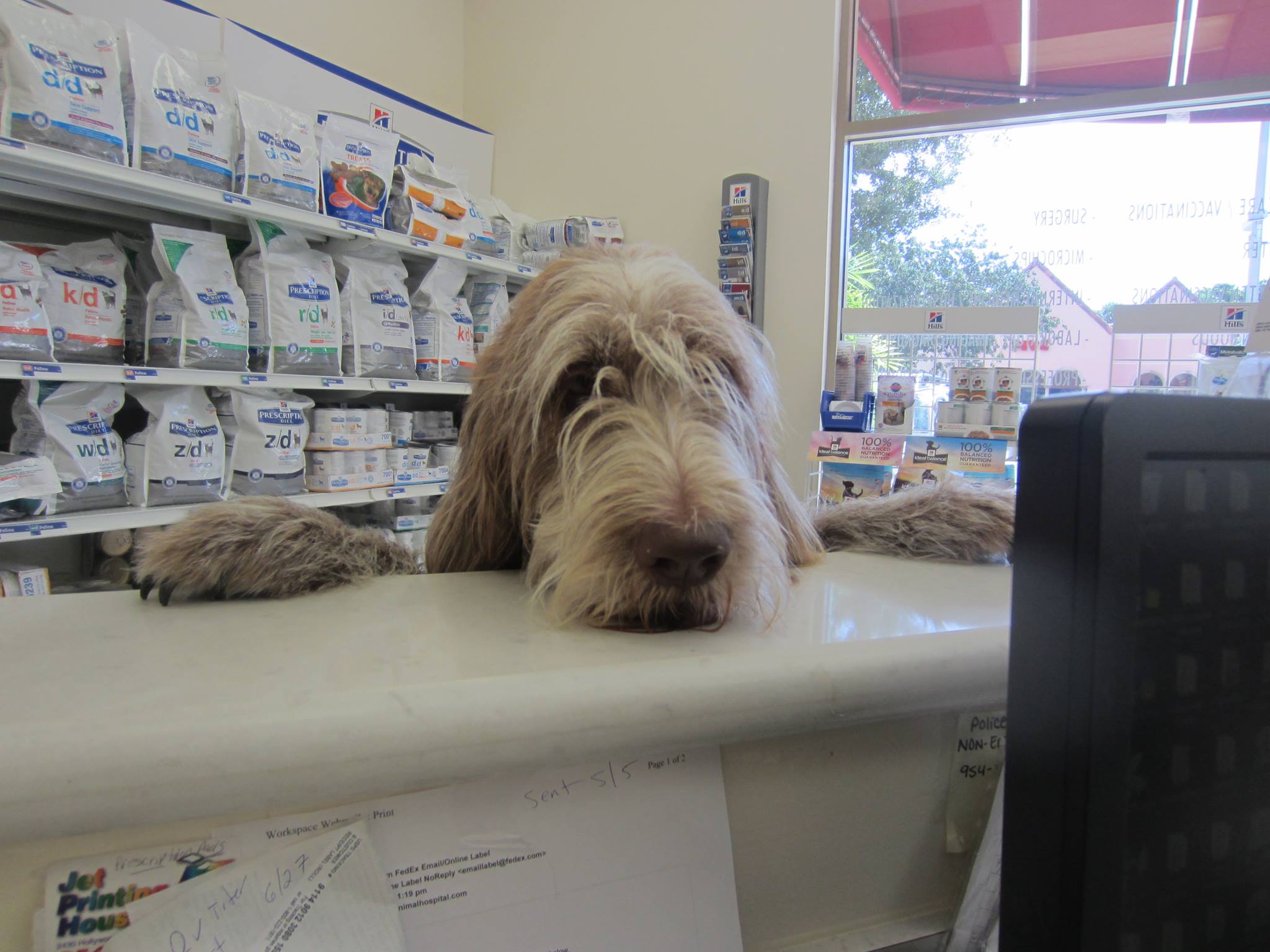
How to Help an Itchy Pet
Hi Everyone! Today I want to address the most common appointment I see at my animal hospital, skin conditions. At some point in their lives, at least 75% of my patients will come in to see me for itching, scratching, licking, hair loss, redness, scabbing, and ear infections, including my own dog, Dory. The questions all my clients have for me are- why is my pet so itchy and please can you do something to relieve his or her discomfort so we can all can get some sleep? Unlike humans who present with runny noses, coughing, sneezing or red watery eyes when allergies attack, our pet’s allergies result in generalized itching, skin infections, and ear infections.
The most common pet allergies are:
- Food Allergies
- Flea Allergies
- Atopy (allergies to environmental allergens such as pollens, grasses, or soils)
What can we do to help an itchy pet from suffering?
The first step is to work with your veterinarian to determine what is causing your pet’s allergic reaction. If it’s a food allergy, placing him or her on a prescription hypoallergenic diet will help considerably. If our pets are allergic to fleas, veterinarians can prescribe flea preventatives that are very effective and most importantly, safe for your pets. The top flea and tick prevention I prescribe is Nexgard. If your pet has Atopy, there are a number of medications and measures you and your vet can discuss to relieve your pet from chronic itching.
All pets, regardless of the type of allergy, should receive weekly medicated shampoos and be supplemented with omega 3 fatty acids. In addition, certain medications such as antibiotics, antihistamines, immuno-suppresants, hypoallergenic vaccinations, and in severe cases steroids, can help relieve your pet’s suffering considerably. Some of my most severe allergy patients, who are not responding to routine treatment, will be referred to a veterinary dermatologist.
Unfortunately allergies are a common problem for our furry friends, but fortunately there are many things we can do to help. I try and stress to my clients that allergies in pets are not treatable, but they are manageable. My goal is relieve your pet as much as possible to provide him or her with less breakouts, less itching, and more comfort. Speak with your veterinarian to discuss an appropriate treatment plan for your pet’s allergies!






So funny I came across this, I was literally JUST researching atopic dermatitis & trying to find a derm vet around here (they seem to be pretty scarce unfortunately). My female bully has the WORST skin problems & has for years. We’ve tried EVERYTHING from a variety of limited ingredient diets to allergy shots to the frequent prednisone injections followed by oral Rosing doses, to atopica (which is insanely pricey so we were trying to reserve it as a last option but it’s been almost a year (10 mos to be precise) & even that is not working AT ALL anymore. It breaks my heart to see her so uncomfortable, she’s just riddled with spots everywhere 🙁 What has always bothered me about the dx is that from everything I’ve ever found on hot spots it always says that they’re caused by a irritated area that the pet persistently scratches or chews or licks therefore making it red & even more irritated. The thing with her spots is that there’s so many in places I know she can’t reach (like between shoulders when flea med is applied for instance) & we have never seen her scratching, licking, or chewing at all either. I know she could do it when we’re not home so we even got a security cam to see if she does & even using that we haven’t spotted her scratching or doing anything that would cause them! It always make me wonder if maybe it’s something our vet missed or overlooked (which is why I wanted to see if I could find 1 that specializes in derm) but is there any way for a dog to get dry hairless patches of skin in areas that they don’t scratch or lick or chew? I know bullies are prone to skin issues but I’m telling you this is crazy!!! I hate to even ask, it’s just so frustrating to have seemingly exhausted all options & still have the problem worse than ever. I’ve told my husband a couple times that maybe we should try bringing her to you for a second opinion. At least I’d know you’re not just feeding me some a generic response/treatment & running all sorts of unnecessary tests. I have to do SOMETHING. I can’t stand to see her like this anymore. <\3
Hi I can absolutely refer you to a dermatology specialist that I really trust. I am happy to evaluate your pet and maybe offer you some more options. Unfortunately, bullies, as you know have the worst skin conditions, but hopefully we can offer something more for her! Victoria Park Animal Hospital 954 617 8724:) Hope to see you!!